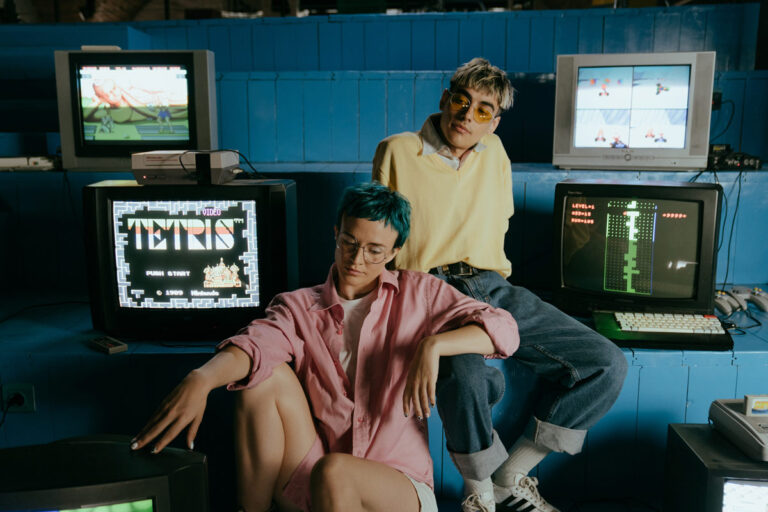China’s war on ‘electronic drugs’: is online gaming an addiction risk for teenagers?
Gaming has come a long way since the pass-and-play sessions of Crash Bandicoot on the PS2. As technology has evolved, so has the gaming industry. The online gaming industry, in particular, is practically unrecognisable from its predecessors. No longer is gaming a niche hobby, it’s a multimillion-dollar industry rivalling Hollywood in terms of its outreach and sheer popularity. Nowhere is this more apparent than in China, where the Chinese games market is set to reach a value of 35 billion dollars in 2021. According to ISFE, the average gamer is now 31 years old. However, China believes online gaming is “destroying a generation”—likening the hobby to “opium” when it comes to its addictiveness.
Online gaming firms dubbed as “electronic drugs”
Two of China’s biggest online gaming firms, Tencent and NetEase, have had their shares fall more than 10 per cent in early Hong Kong trade after a Chinese state media outlet called online gaming “electronic drugs.” The stigmatisation—portrayed by the Chinese Communist Party (CCP) state-run media—is not a new phenomenon. According to the BBC, investors have become “increasingly concerned” about Beijing cracking down on online gaming firms. It comes after authorities in the country announced a series of measures to tighten their grip on technology and private education companies over the recent months.
An article, written by the state-run publication Economic Information Daily, stated that many teenagers have become addicted to online gaming—thus having a negative impact on them. It also cited that students would play Tencent’s popular game Honor of Kings for up to eight hours a day and suggested there should be more curbs on the industry. “No industry, no sport, can be allowed to develop in a way that will destroy a generation,” the article went on to argue, likening the online gaming industry to “spiritual opium.”
Since the removal of the article from the publication’s account on WeChat, both firms’ shares have recovered. However, the article has changed the face of online gaming in China as we know it. In response to the claims, Tencent has announced its plans to introduce measures that will reduce children’s access to, and time spent on, its Honor of Kings game—the firm also hinted that it will eventually roll out such policies on all of its games.
Add this to the growing list of new measures Tencent is implementing in a bid to stop minors from becoming “addicted to online games.” It was only in 2019 when the firm—the biggest game company in the world—announced it would roll out facial recognition technology that will scan gamers faces every evening in order to catch minors breaking a gaming curfew and helping to prevent video game addiction. Dystopian or a valid measure to prevent addiction? I’ll let you decide.
Gaming addiction is a legitimate problem
So is video game addiction actually a problem? China seems to think so. Prevention of video game addiction is literally the law of the land. It’s been an aspect of the law that has been evolving over the past decade or so—recently, however, it’s hit some important milestones. China introduced a law that banned minors from playing video games between 10 pm and 8 am, or for playing more than 90 minutes on a weekday in 2019. A moment of silence, please, for the teenagers in China who have been robbed from sneaking to the family PC in the dead of night to get their League of Legends fix.
Jokes aside, China hasn’t been the only culture to wake up to the harmful damage video game addiction can cause to children. Albeit, they’ve been the only ones to implement measures that many in the West would consider Draconian. Video game addiction has recently been added to the Diagnostic and Statistical Manual of Mental Disorders (DSM), a psychiatric ‘handbook’ used to list all mental health disorders and diagnose them appropriately. The condition ‘Internet Gaming Disorder’ is listed up there with gambling addiction and substance addiction. Research has also suggested how 1 to 16 per cent of video gamers meet the criteria for addiction—when unaddressed, such an addiction could have a detrimental impact on mental health and work or social life.
But isn’t straight-up banning minors from gaming at night a bit overkill? Many would argue yes. It’s a two-way street: I’m inclined to believe that taking such measures is a narrow-minded response to the problem. In fact, gaming can bring many positive benefits in terms of mental health and allowing people to socialise with others—which is particularly important, now more than ever, in the era of pandemic-induced lockdowns.
Of course, addiction is a serious mental health disorder and should be addressed accordingly. However, stripping every teenager the ability to game for longer than 90 minutes to prevent cases of addiction seems to be somewhat harsh. There are people out there addicted to mac and cheese, should we put a limit on that too? Ultimately, there will be people who agree and disagree. As new technology evolves, so will the gaming industry. How we will face this change, and the problems it brings, is still up for debate.






